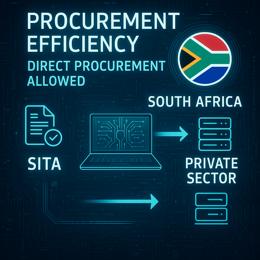Image created by AI
Tshwane Metro Faces Scrutiny Over R242 Million Increase for Water Tankers
In a move that has sparked significant controversy and concern, the Tshwane Metropolitan Municipality has approved an additional R242 million for the procurement of water tankers, significantly increasing the existing budget by 64%, from R378 million. This decision has raised alarms with AfriForum, the civil rights organization, which is now questioning the transparency and justification of this escalated expenditure.
AfriForum's Head of the Northern Region, Sampie Steinberg, expressed deep concerns regarding the Metro's continued dependence on water tankers, especially amid ongoing financial challenges facing the municipality. Steinberg argues that such a substantial increase in the budget should be justified transparently, pointing out that the residents of Tshwane have a right to understand how their money is being spent and to ensure it is used effectively.
The ANC coalition in @CityTshwane is proposing to increase spending on water tankers by 62% with five months left of the municipal financial year. ActionSA mayor @nasiphim is asking the municipal council for R242 million extra for water tankers on top of the R378 million in the… pic.twitter.com/mOPDNu7Hir
— Cilliers Brink (@CilliersB) February 27, 2025
The reliance on water tankers in Tshwane has been a longstanding issue, with the Metro grappling with inadequate water infrastructure that fails to meet the demand of its growing population. The additional funding seems aimed at addressing these shortfalls. However, AfriForum insists that this approach is a temporary solution to a more significant infrastructural problem, and it underscores the need for a more sustainable and long-term strategy to improve water distribution and availability.
The organization is not just seeking clarification and justification for the budget increase but is also calling on officials to provide timely feedback and take steps to investigate the necessity and transparency of this decision. AfriForum is adamant that without proper reasoning and clear plans, the Metro should not be allowed to approve such significant budget adjustments.
This situation underscores a greater issue within the Tshwane Metro and potentially other regions in South Africa, where temporary solutions overshadow the critical need for permanent and sustainable infrastructure improvements. It poses serious questions about priorities and governance within municipal structures, particularly in how public funds are allocated and spent.
As Tshwane continues to navigate its complex financial and infrastructural challenges, the eyes of organizations like AfriForum and the broader public will undoubtedly remain fixed on how these issues are managed. The demand for transparency, accountability, and efficiency in public spending has never been more critical, as communities seek assurance that their funds are used to foster a more stable, reliable, and accessible public service infrastructure.










